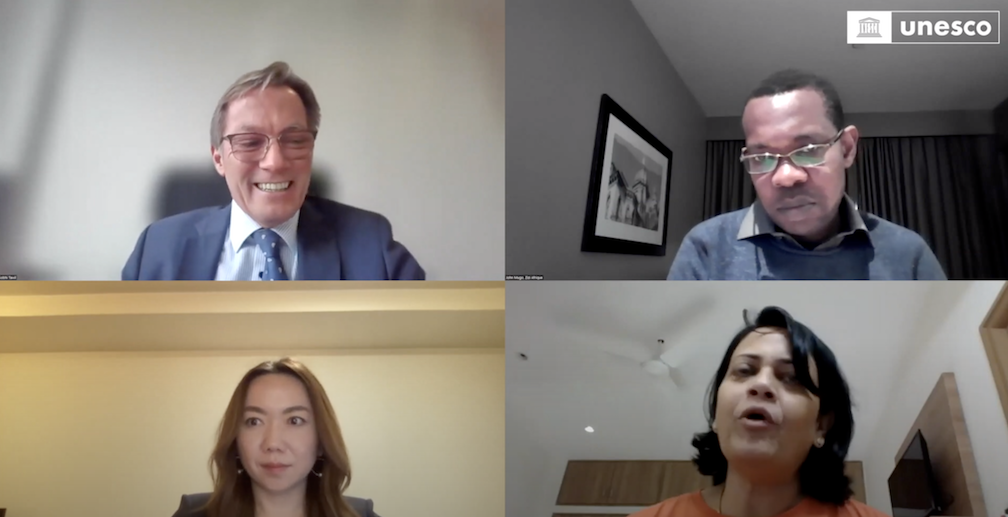Watch the full video of the launch event here.
On 28 April 2022, UNESCO hosted an online event to celebrate the release of the third volume of NISSEM’s Global Briefs, an open-access collection of papers edited by NISSEM Co-conveners Andy Smart and Margaret Sinclair. The third edition of the Global Briefs features thirteen papers from around the globe that describe a variety of approaches to conceptualizing, facilitating and assessing social and emotional learning (SEL) – broadly defined as a process that supports children’s emotional development and helps them to build healthy social relationships, self-esteem and agency.
The webinar was moderated by Sobhi Tawil, Director of Learning and Innovation at UNESCO, with opening remarks by Stefania Giannini UNESCO’s Assistant Director-General for Education and an overview of the Global Briefs by NISSEM Co-convener Aaron Benavot were followed by presentations from four contributors to the volume, each shedding light on the process of implementing SEL in non-Western contexts.

The follow-up discussion addressed questions and concerns from participants from around the globe, centering mainly on implications for training and support for teachers as they integrate SEL into their teaching practice. Panelists stressed the need for teachers to build on what they already know and do, but also to gain more structured knowledge and to co-create contextualized strategies for prioritizing and nurturing SEL competencies their classrooms. Developing strategies and assessment tools must be based on a shared understanding among all implementers, including school leaders and teachers, of SEL concepts and processes, using familiar terms.
In her concluding remarks, Cecilia Barbieri, Chief of the Section of Global Citizenship and Peace Education at UNESCO, reflected on the contributors’ experiences of actively involving teachers and communities in the process of bringing SEL to life in their local contexts. These studies from the NISSEM Global Briefs bring into focus the view that SEL that “is not, in itself, an outcome to be achieved, but a process in which to engage broadly” in diverse educational settings. Further research in this dimension, especially from the Global South, will continue to inform UNESCO’s vision of humanistic and holistic education and ultimately result in lasting transformations.